Speculations fueled as whether Saudi king’s bodyguard killed over Khashoggi’s murder
New reports have emerged in online media pointing to a possible link between the recent killing of the personal bodyguard of Saudi King Salman and the gruesome murder of dissident journalist Jamal Khashoggi by a Saudi hit squad last year.
According to the official report released by Saudi sources, Major General Abdul Aziz al-Fagham, 47, was shot dead by a close friend identified as Mamdouh bin Meshaal al-Ali during a melee described by Saudi police as a “personal dispute” in a friend’s house in the western city of Jeddah on Saturday night. He succumbed to his wounds a day later.
The shooter refused to surrender to security forces, who had surrounded the site and shot him dead, the police statement further said, adding that another Saudi, a Filipino and five members of the security forces also sustained gunfire injuries.
The British tabloid newspaper The Sun speculated in a Monday article that al-Fagham, who had served former Saudi King Abdullah since 2002 and incumbent King Salman since 2015 as a protection officer, “may have had explosive dirt on Jamal Khashoggi’s killers” before being shot dead in the suspicious gunfight.
Khashoggi, a former advocate of the Saudi royal court who later became a critic of Crown Prince Mohammed bin Salman, was killed after being lured into the Saudi consulate in Istanbul on October 2, 2018, and his body was dismembered by a Saudi hit squad.
The gruesome murder is believed to have been directly ordered by the crown prince, who is also known as MbS and seen as the de facto ruler of the Arab kingdom. However, the Saudi government claims that the ill-fated journo was killed by a “rogue” group, denying that the crown prince had ordered the slaying.
The report by the The Sun further speculated that al-Fagham, who was affectionately known as the king’s “walking stick” by the royal court insiders, had allegedly been recently relieved of his post with rumors circulating that he might have had vital information on Khashoggi’s assassination.
Al-Fagham was the head of the royal palace’s guards that murdered the dissident journalist.
In a related development and in a report on Sunday, the New York Times, citing an unnamed person familiar with the case, said it was not yet clear what had motivated the shooter to kill his friend, al-Fagham, but around the time of the killing “Saudi officials reached out to regional intelligence sources to ask for urgent help in gathering and analyzing information about a number of Saudi citizens.”
The report further quoted the individual as saying that the push for information came from King Salman and MbS. However, it was not yet fully known who the Saudi leaders were seeking information about and whether that effort might have been related to the shooting of al-Fagham.
Speaking to CBS’s 60 Minutes on Sunday, Crown Prince Mohammed attempted to portray himself as not having been involved in the brutal murder, and while denying an ability to keep an eye on everything, said he “took full responsibility as a leader in Saudi Arabia” for Khashoggi’s murder “because it happened under my watch.”
UN expert raps Saudi crown prince over Khashoggi remarks
In another development on Monday, Agnes Callamard, a United Nations special rapporteur who conducted an investigation into Khashoggi’s murder, lambasted MbS for trying to create a “distance” between himself and the gruesome execution.
Callamard, whose independent investigation into Khashoggi’s execution found “credible evidence” linking MbS to the murder and an attempted cover-up, strongly dismissed the crown prince’s defense as “problematic.”
“He is only taking corporate responsibility for the crime, which goes without saying,” Callamard said, condemning the crown prince for taking “no personal responsibility for the crime.”
“He is creating huge distance between himself and the crime” by arguing that he cannot be personally held responsible for the conduct of all Saudi government employees, the UN official further said.
Callamard also said that the interview, which contains Prince Mohammed’s first public remarks on the matter, appeared to mark a concession by the de facto ruler that “the killing of Mr. Khashoggi was a state killing,” hence, a rejection of the Saudi government’s previous explanation that the responsibility for the execution lay with “rogue” agents.
“For the last 12 months, the Saudi state, their various representatives and (MbS) included have been lying to the international community regarding the nature of the crime. So now we are supposed to take his word that, yes, he has a corporate responsibility but he has no personal responsibility?” Callamard asked, adding, “Not good enough.”
The Washington Post, for which Khashoggi was a columnist, reported in November last year that the CIA had concluded that Mohammed ordered his killing. Furthermore, an investigative team led by the United Nations (UN) also said that it believed MBS was the prime suspect in the state-sponsored murder. Washington has refused to formally implicate Mohammed, however.
Until now, and despite the international attention that the state-sponsored murder has continuously received, 34-year-old Mohammed had refused to speak about his role in the killing.
With all evidence pointing to him for direct involvement, his acceptance of general responsibility for the murder is seen as an attempt — even if belated — at looking like a political leader answerable on important matters.
Tehran rejects Trump’s riot death toll, demands proof
VIDEO | Police battle opposition protesters in Albanian capital
Israeli expansion across West Asia would be ‘fine’: US envoy
VIDEO | UK court frees remaining jailed members of Palestine Action
VIDEO | Former prince Andrew arrested by British police
VIDEO | Backlash mounts as Pakistan joins US-led Gaza ‘Board of Peace’
Saudi-Greece fiber optic project to pass through Syria instead of occupied territories: Report
Israel steps up bloodshed in Lebanon







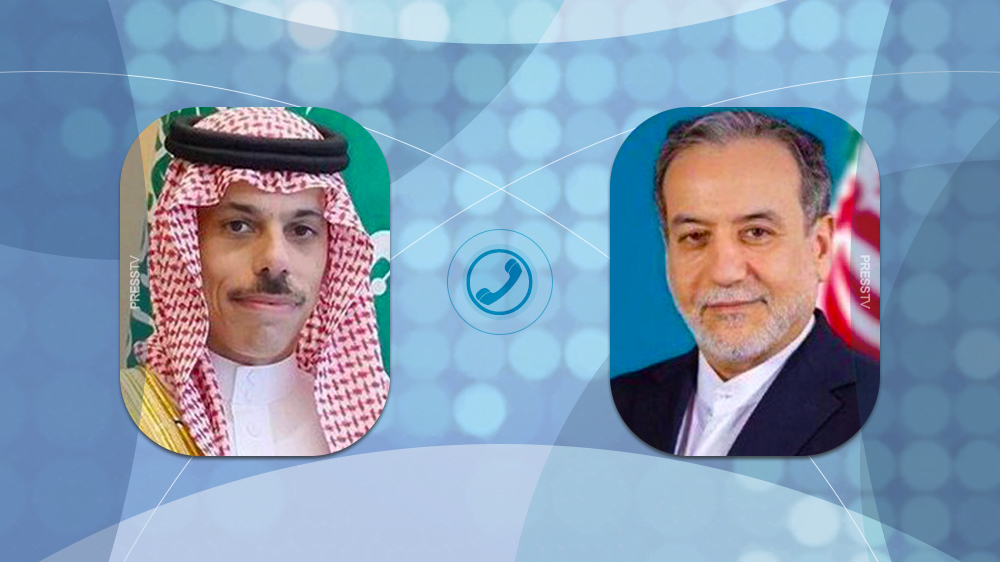
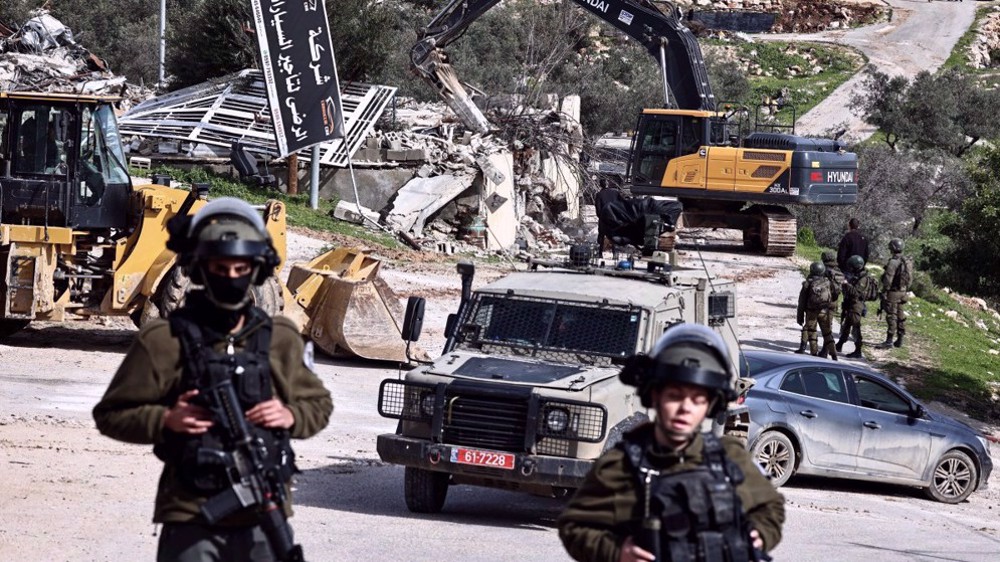
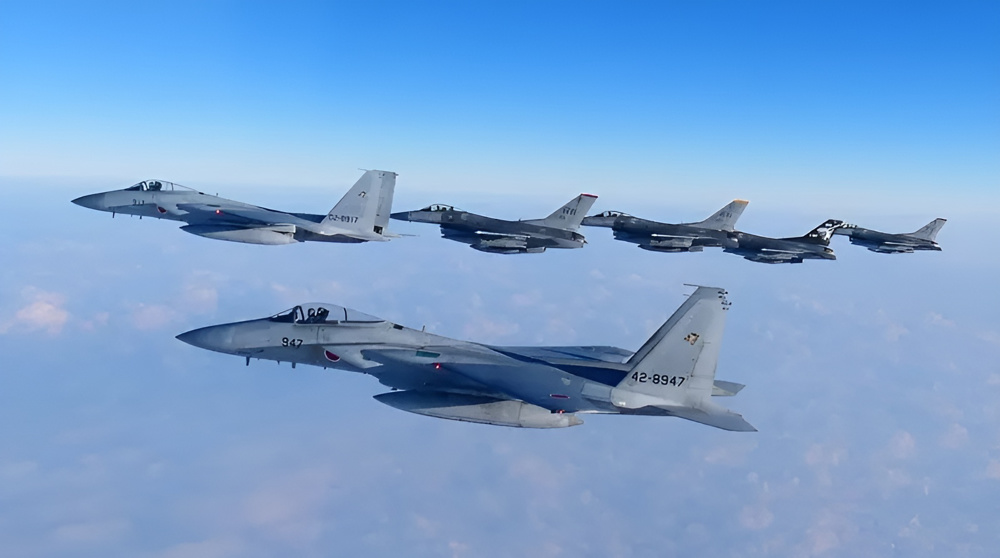




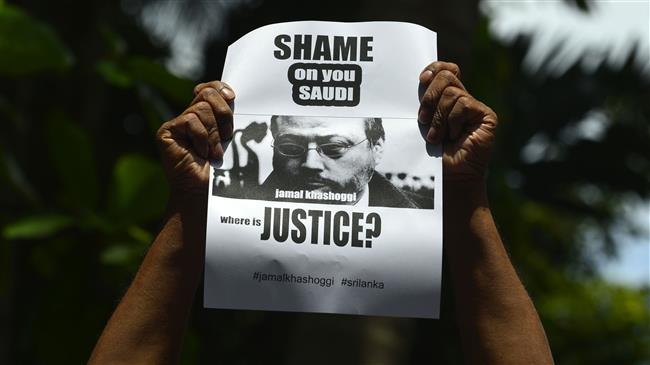
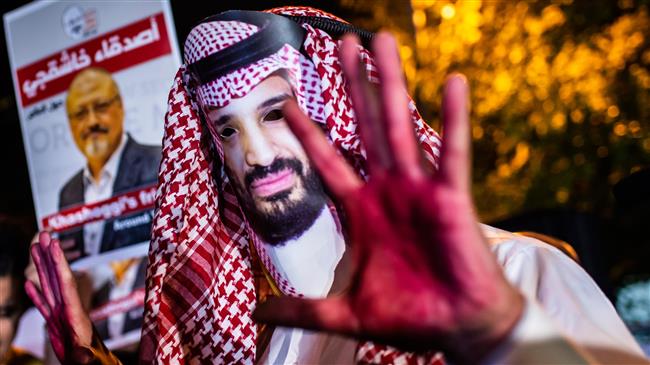

 This makes it easy to access the Press TV website
This makes it easy to access the Press TV website